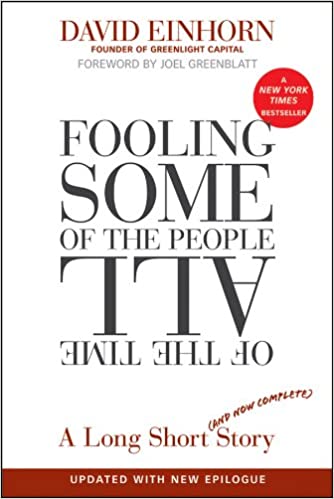| Dear Friends, I have been MIA from this blog. Since the lock down began, I have been writing quite regular (daily) brief notes on the COVID situation and its impact on the economy. Since the 21st of March, we have also hosted 6 webinar with international experts and put our research website live (click here for the link). KASB.Blog has news and comments on anything and everything related to Pakistan’s economy. Pakistan market lacks depth. Fewer than 0.1% of the population has ever invested in stocks. This is despite superior returns in equity investment. The primary reason for this lack of trust. The closest an ordinary Pakistan would have gotten to stock exchange, would perhaps be Aik Din Geo Kay Saath with Mr. Aqeel Karim Dhedi or when Danish hit the jackpot by buying stocks in Meray Pass Tum Ho (click here). When I was at LUMS, the only thing I knew about Karachi Stock Exchange was the paper by Asim Khwaja and Atif Mian titled Price Manipulation in an Emerging Stock Market (click here). I suspect this image of stock investing is not just for the common joe, but even the predominant view point even in important policy circles. Most, if not all of these stereotypes are wrong (either completely or partially). I am not strong enough to put a defense of PSX. The opinions are so ingrained that any counter factual data might not penetrate the walls of bias. Instead, I can talk about other markets – most of whom we like to look upto and emulate (“IK once used to talk about Pakistan’s gora sahib complex). Since leaving Pakistan in 2005, I have directly invested in multiple emerging markets, from Russia in the North down to South Africa in the South, and have advised investors, investing in Apple in the West to Samsung in the East. So lets start with Germany. This week, the case of Wirecard is making the headlines (click here). Wirecard is a €30bn market cap financial services company listed in Frankfurt Stock Exchange in Germany. The stock has been a darling of investors and last year replaced Deutsche Bank as the largest German financial services company. The Financial Times ran a series of investigative articles alleging how the company was doing potentially fraudulent accounting in order to inflate its earnings. The allegations including round tripping on acquisitions and making fake customers. While FT ran a series of articles, neither EY its auditor nor BAFIN the German regulator picked up anything. Now last week KPMG concluded a special audit where they said they cannot find the source of revenues of over $1bn – almost half the earnings of the company. The stock is down 26% since KPMG’s report and there is pressure on the CEO to resign (still no action by the regulator). In my previous career, as a Technology Analyst, I had a sell recommendation on the stock. It was not a comfortable position to be in. Now lets move to the UK, where there are tons of stories. My favourite is the case of Telit (click here). Once a billion dollar company listed on London Stock Exchange, Telit is an Israeli technology company founded by Oozi Cats (click here). Financial Times reported that Oozi Cats was a convict and fugitive. He had been indicted in property fraud in the US. He and and his wife moved to Europe, changed the spelling of his names from Uzi Katz to Oozi Cats and managed to clear all background checks. At Telit, he was drawing a salary of over $1m and getting the company to pay the rent for a palace in Italy, where he lived. His wife was also employed by the business. Despite FT’s articles it look a long time for the cat to come out of the bag. Lets take another one, insurance and vehicle tracking company, Quindell was at its peak a £2.7bn market cap business. It was found to have fraudulently turn a loss of £68m in 2014 to a profit of £83m. The corporate brokers who were supposed to check the company were given minimal fines. Another fintech unicorn, Monitise was a $1bn market cap company and had investments from Visa. I had a sell recommendation with a zero price target. I thought it was completely misguiding investors. Again not an easy thing to do. Received threatening calls from the CEO. Eventually it tanked and went below its cash value (click here). The most popular case study might actually be the case of Autonomy. It was acquired by HP for $11.1bn. Later HP found out that there was accounting fraud and they had to write it down by $8.8bn. The CFO has been sentenced to jail (click here). I can give many other examples but its late evening and with fasting, it gets tiring. There is a lot of material online about these and other cases. There is a famous book about Exxon and US accounting fraud cases called Fooling Some People All The Time (click here). It is important to recognize that the magnitude of these frauds are much larger than anything in Pakistan. Just Wirecard’s market cap is almost equivalent to the total market cap of Pakistan Stock Exchange. Yet despite this, there is no witch hunting. No over policing by the regulator. No TV shows. No NAB. There is an excellent explanation of why in these countries, despite of fraud, the regulators dont become over zealous, in the book Talking to Strangers by Malcolm Gladwell. He argues that well functioning societies are build on the concept of “default to truth”. If they break this, then the whole social order of trust will collapse leading to paranoia and eventually chaos. I think this book should be a mandatory read for anyone in regulatory roles in Pakistan. I fear that in Pakistan even trivial issues get magnified. The result is a society of distrust. Stock markets are fundamentally built on contract of trust. I feel we take ourselves too seriously. That is why I thought it was important to see things from slightly larger perspective. As they said in Casablanca: Ilsa, I’m no good at being noble, but it doesn’t take much to see that the problems of three little people don’t amount to a hill of beans in this crazy world. I hope and pray that you and our families stay safe and healthy. |
I am, yours truly, Ali Farid Khwaja * This is not research material and there is no investment recommendation in this blog. These are my personal views and do not represent the views of KASB Research team. |
Pakistan Macro Blog: PSX more transparent than London and Frankfurt?


I mean yes distrust is there and rightly so. We might not have had scandals like those in western economies, but we’ve had our share of extremely dishonest and corrupt people. There are several other reasons too you know,
1. We’ve disproportionately favored STEM careers over business and art careers. Only the academically unsound are expected to go into the latter. Even within STEM careers the students aren’t taught any innovation. So we have our elite and smart educated class in mostly science and engineering, with little understanding of stock market and hence fear of putting money and these people will not even contribute to the market by establishing their own companies with innovation and listing them later.
2. Historically real estate sector has been a darling of middle class families investment portfolio.
3. PSX might not be fradulent but it has been extremely volatile since IK has taken over.
4. There is major lack of awareness – not many know how to invest, what to monitor etc.
5. Our savings/GDP ratio is already the lowest in region … we’re very consumption oriented already. So how can we invest in risky equity when we don’t invest even in fixed income.
6. Could be only my family thing – but growing up I had even heard that investing in stock market is haraam. They had confused short bets as what stock market does, but yes the easiest way to demean a product/service in Pakistan is by calling it haram.